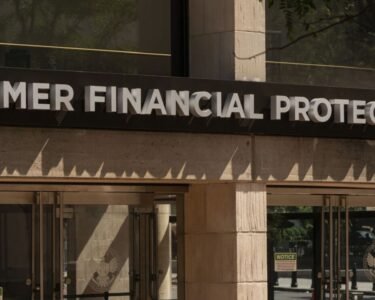FULL LIST OF EDITORIAL PICKS: BEST SECURED CREDIT CARDS TO BUILD CREDIT
Before applying, confirm details on the issuer’s website.
Discover it® Secured Credit Card
Our pick for: Rewards and upgrading
Like other secured credit cards for people building or rebuilding credit, the Discover it® Secured Credit Card requires a cash security deposit. Unlike most others, it offers rewards. But what really makes it stand out from the competition is its upgrade possibilities. The issuer has a process in place for automatically reviewing accounts for possible transition to an unsecured card. Read our review.
Capital One Quicksilver Secured Cash Rewards Credit Card
Our pick for: Rewards and upgrading
The Capital One Quicksilver Secured Cash Rewards Credit Card offers an impressive combination of features for those with poor credit. A deposit is required, but in exchange you get a $0-annual-fee card that reports to all three credit bureaus (see see rates and fees); an automatic credit limit review after six months; and a possible upgrade path to an unsecured Capital One card. Oh, and 5% back on hotels and rental cars booked through Capital One Travel, plus 1.5% back on all other purchases, which equals what you’d find on many unsecured cards. Read our review.
Capital One Platinum Secured Credit Card
Our pick for: Low deposit
The Capital One Platinum Secured Credit Card requires a security deposit, as do all secured credit cards. But while most cards require you to put down a deposit equal to your credit line, this one allows some qualifying applicants to get a $200 credit line with a deposit starting at $49. Further, you can be automatically considered for a higher credit line with no additional deposit in as little as six months (see rates and fees). Read our review.
Citi® Secured Mastercard®
Our pick for: Basic card for thin credit
The Citi® Secured Mastercard® is a straightforward card for people new to credit — put down a security deposit, use the card to establish a positive credit history and then move up to a better card (and get your deposit back). One note: This card is for people just starting out with credit, rather than people with bad credit from past mistakes. Read our review.
OpenSky® Secured Visa® Credit Card
Our pick for: No credit check + lower deposit
The OpenSky® Secured Visa® Credit Card charges an annual fee, but a lot of people will still want to take a look at it for two reasons. First, there’s no credit check required. Second, you don’t need a traditional bank account; you can fund the deposit or pay your bill with a money order or Western Union payment. Read our review.
OpenSky® Plus Secured Visa® Credit Card
Our pick for: No credit check + no annual fee
Like the regular OpenSky card, the OpenSky® Plus Secured Visa® Credit Card doesn’t require a credit check or a bank account. This card, however, charges an annual fee of $0 — at the cost of a higher minimum deposit and a higher interest rate. Read our review.
Chime Secured Credit Builder Visa® Credit Card
Our pick for: Easy account management
This card has no minimum deposit requirement, charges neither an annual fee nor interest, and doesn’t require a credit check, and you can automate your payments so you’re never late. But to get it, you must be a Chime® banking customer, which is an extra hoop to jump through — and which comes with its own considerations when it comes to customer service. Read our review.
Chime says the following:
-
The secured Chime Credit Builder Visa® Credit Card is issued by The Bancorp Bank, N.A. or Stride Bank, N.A., Members FDIC, pursuant to a license from Visa U.S.A. Inc. and may be used everywhere Visa credit cards are accepted. Please see the back of your card for its issuing bank.
-
To apply for Credit Builder, you must have received a single qualifying direct deposit of $200 or more to your Checking Account. The qualifying direct deposit must be from your employer, payroll provider, gig economy payer, or benefits payer by Automated Clearing House (ACH) deposit OR Original Credit Transaction (OCT). Bank ACH transfers, Pay Anyone transfers, verification or trial deposits from financial institutions, peer to peer transfers from services such as PayPal, Cash App, or Venmo, mobile check deposits, cash loads or deposits, one-time direct deposits, such as tax refunds and other similar transactions, and any deposit to which Chime deems to not be a qualifying direct deposit are not qualifying direct deposits.
-
Based on a representative study conducted by Experian®, members who made their first purchase with Credit Builder between June 2020 and October 2020 observed an average FICO® Score 8 increase of 30 points after approximately 8 months. On-time payment history can have a positive impact on your credit score. Late payment may negatively impact your credit score.
-
On-time payment history may have a positive impact on your credit score. Late payment may negatively impact your credit score. Chime will report your activities to Transunion®, Experian®, and Equifax®. Impact on your credit may vary, as Credit scores are independently determined by credit bureaus based on a number of factors including the financial decisions you make with other financial services organizations.
-
Money added to Credit Builder will be held in a secured account as collateral for your Credit Builder Visa card, which means you can spend up to this amount on your card. This is money you can use to pay off your charges at the end of every month.
Self Visa® Secured Card
Our pick for: No upfront deposit or credit check
The Self Visa® Secured Card offers a unique path to building credit. Unlike typical secured cards, it doesn’t require an upfront security deposit or a credit check. But it does make you jump through some hoops that other secured cards don’t. You start by making payments on a secured loan, which become savings that you can use for your deposit. It’s complicated, but for those struggling to establish a credit history, it can be efficient and effective. Read our review.
Petal® 1 “No Annual Fee” Visa® Credit Card
Our pick for: No-deposit alternative
The issuer of the Petal® 1 “No Annual Fee” Visa® Credit Card doesn’t only rely on credit scores to determine eligibility. Instead, it assesses your creditworthiness based on your income, expenses, savings and debts. The card earns a decent rate of up to 10% cash back when you use the card to shop with select merchants. And there’s no annual fee, late fees or foreign transaction fees. (The card is issued by WebBank, Member FDIC.) Read our review.
Credit Builder Secured Visa® Credit Card
Our pick for: Adjustable credit limit
The Credit Builder Secured Visa® Credit Card from Armed Forces Bank makes it easy to increase your credit line over time to give you greater flexibility and keep your credit utilization low. You can increase your limit in $50 increments simply by depositing more money at any time. Read our review.
Navy Federal Credit Union® nRewards® Secured Credit Card
The no-annual-fee Navy Federal Credit Union® nRewards® Secured Credit Card earns rewards, offers an upgrade path and even features some perks, which is a lot from a secured product — if you can swing the membership and security deposit requirements. Read our review.
DCU Visa® Platinum Secured Credit Card
Our pick for: Low fees and interest
The DCU Visa® Platinum Secured Credit Card is a secured card for bad credit, but it offers a lower interest rate than many unsecured cards for people with good credit. You must be a member of Digital Federal Credit Union to get this card, although you can join by becoming a member of a partner organization for as little as $10. Read our review.
OTHER RESOURCES
Getting a secured credit card to build credit
Who can be approved?
Even though secured credit cards are available to people with bad credit, and even though the security deposit reduces the risk to the issuer, approval is not guaranteed for everyone:
-
The issuer will usually (but not always) check your credit report for signs that you’re an unacceptable credit risk. If you’re in the middle of a bankruptcy, for example, or you’re currently delinquent on other accounts, or you’ve opened a bunch of new accounts recently, you’re unlikely to be approved.
-
You’ll also have to show that you have income so you can pay your credit card bill. Yes, the issuer has your deposit, but it will use that money to cover your bill only as a last resort. You’re expected to pay your bill every month, so you’ll need income.
How does the process work?
Every issuer handles things a bit differently, but the process of applying for, receiving and using a secured credit card works like this:
-
You apply for the card. The issuer evaluates how risky they think it would be to extend you credit (a process called underwriting), and if your application meets their standards, you’re approved.
-
You fund the deposit. Before the issuer will open your account, you have to pay your security deposit. In some cases, you must provide bank account information with your application so the deposit can be transferred right away. Other times, the issuer will give you some time to pull together the deposit. If you neglect to fund the deposit, the issuer will change the status of your application from approved to rejected.
-
You receive the card. Once your deposit is funded, the issuer will send you your card. You can then use it just like any other credit card. In general, it’s best to use less than 30% of your available credit at any given time, so don’t go maxing out your secured card. Use it for a few small purchases each month and pay them off promptly.
-
You get your bill and pay it each month. Because secured cards tend to charge very high interest rates, it’s best to pay your bill in full every month to avoid finance charges. The issuer reports your payments to the credit bureaus, which helps you build credit.
-
You upgrade. As your credit moves from bad to average to good, you’ll be in a position to qualify for better cards:
-
Some issuers automatically review your account for potential upgrade to an unsecured card. For example, Discover does this with the Discover it® Secured Credit Card after seven months. Navy Federal Credit Union starts automatic reviews after six months when you have the Navy Federal Credit Union® nRewards® Secured Credit Card. When your issuer moves you to an unsecured card, you get your deposit back.
-
With other issuers, you may have to specifically request an upgrade. That might mean converting your secured account to unsecured or closing your secured card and opening a new unsecured account. Either way, you get your deposit back.
-
If your issuer can’t or won’t upgrade you — and keep in mind that not all secured-card issuers even offer unsecured cards — you can apply for unsecured cards separately. Eventually you’ll want to close the secured card to recoup your deposit.
Alternatives to secured credit cards
Unsecured cards for bad credit
Several issuers specialize in unsecured credit cards for people with bad credit, but NerdWallet generally doesn’t recommend them. That’s because these “subprime specialist” cards tend to charge high fees that can easily add up to much more than a typical minimum security deposit — annual fees up to $99, application fees, “activation” and “processing” fees, monthly maintenance fees and so on. And unlike the deposit on a secured card, those fees are money you can’t get back. Our roundup of the best and worst cards for bad credit has more information on cards to avoid.
Prepaid debit cards
Prepaid debit cards offer convenience and are a safer alternative than carrying cash, but they don’t help you build credit. With a prepaid debit card, you “load” money onto the card, and the purchases you make are paid for with that money. Because you’re not borrowing money, there’s no effect on your credit score. See NerdWallet’s best prepaid cards.
Credit-builder loans
Offered mostly by smaller financial institutions, such as credit unions and community banks, these loans are designed to help you build a good payment history. The money you “borrow” isn’t actually given directly to you. Instead, it’s held on your behalf in a savings account while you repay the loan in monthly installments. Once you’re done, the money is released to you — and your credit report shows a paid-off loan. Learn more about credit-builder loans.
Personal loans
These loans can be secured or unsecured. Unsecured loans (those without collateral, such as a car title) generally have higher interest rates than secured loans. The better your credit, the lower your rate is likely to be. Conversely, those with bad credit can expect to pay very high rates, if they can get a loan at all. Learn more about personal loans.




